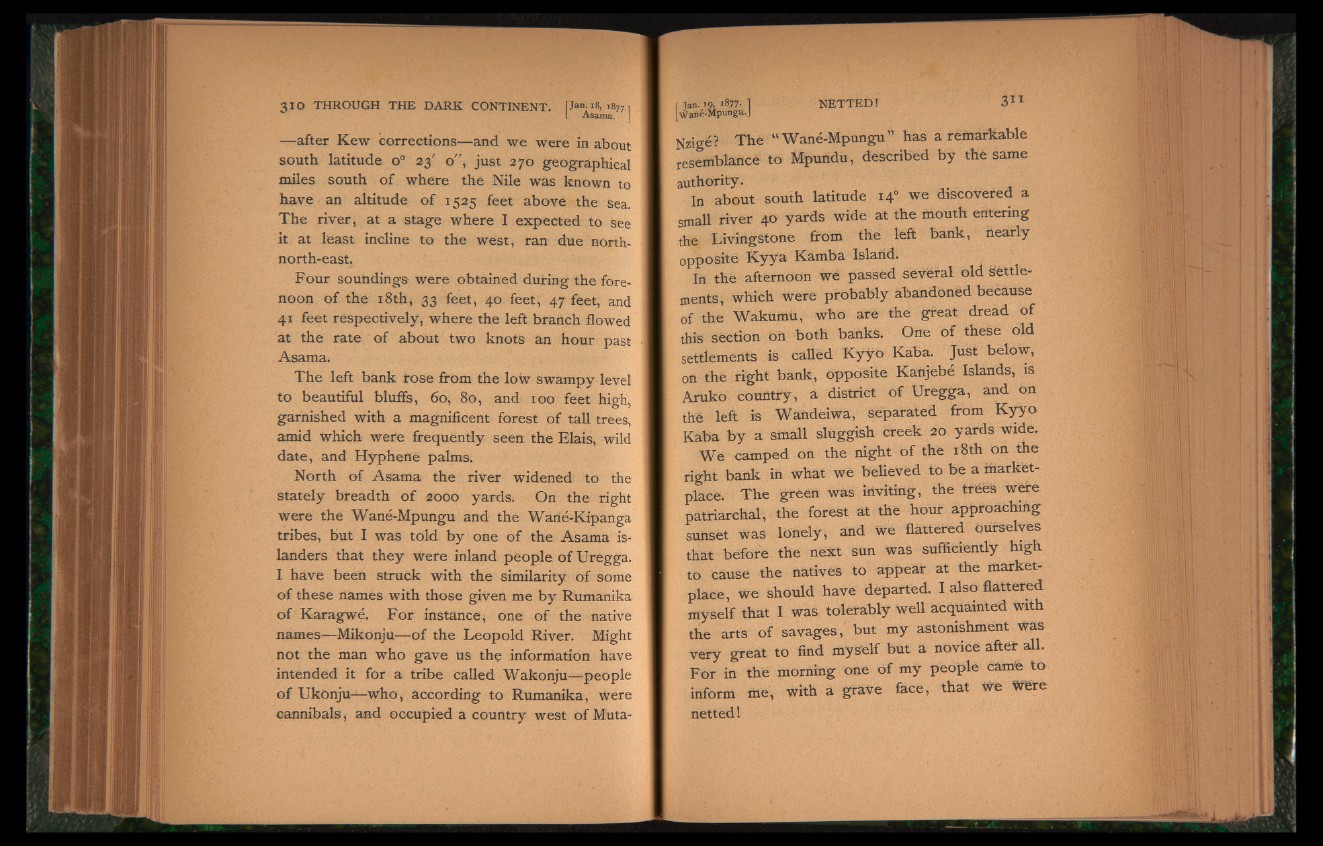
— after Kew corrections— and we were in about
south latitude o° 23' o", just 270 geographical
miles south of where the Nile was known to
have an altitude of 1525 feet above the sea.
The river, at a stage where I expected to see
it at least incline to the west, ran due north-
north-east.
Four soundings were obtained during the forenoon
of the 18th, 33 feet, 40 feet, 47 feet, and
41 feet respectively, where the left branch flowed
at the rate of about two knots an hour past
Asama.
The left bank rose from the low swampy level
to beautiful bluffs, 60, 80, and 100 feet high,
garnished with a magnificent forest of tall trees,
amid which were frequently seen the Elais, wild
date, and Hyphefie palms.
North of Asama the river widened to the
stately breadth of 2000 yards. On the right
were the Wane-Mpungu and the Wane-Kipanga
tribes, but I was told by one of the Asama islanders
that they were inland people of Uregga.
I have been struck with the similarity of some
of these names with those given me by Rumanika
of Karagwe. For instance, one of the native
names—Mikonju— of the Leopold River. Might
not the man who gave us the information have
intended it for a tribe called Wakonju—people
of Ukonju— who, according to Rumanika, Were
cannibals, and occupied a country west of Mutar
[WJa anné.*-M9i piu8n7g7a' .J1 NETTED! 3”
Nzigé? Thè “ Wané-Mpungu” has a remarkable
resemblance to Mpundu, described by the same
authority.
In about south latitude 14° we discovered a
small river 40 yards wide at the mouth entering
the Livingstone from the left bank, nearly
opposite Kyya Kamba Island.
In the afternoon we passed several old Settlements,
which were probably abandoned because
of the Wakumu, who are the great dread of
this section on both banks. One of these old
settlements is called Kyyb Kaba. Just below,
on the right bank, opposite Kanjebé Islands, is
Aruko country, a district of Uregga, and on
thè left is Wandeiwa, separated from Kyyo
Kaba by a small sluggish creek 20 yards wide.
We camped on the night of the 18th on the
right bank in what wè believed to be a marketplace.
The green was inviting, the trées were
patriarchal, the forest at the hour approaching
sunset was lonely, and we flattered ourselvès
that before the next sun was sufficiently high
to cause the natives to appear at the marketplace,
we should have departed. I also flattered
myself that I was tolerably well acquainted with
the arts of savages, but my astonishment Was
very great to find myself but a novice aftet all.
For in the morning one of my people càmte to
inform me, with a grave face, that we Wbre
netted!